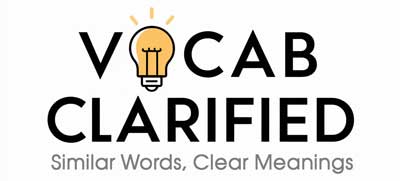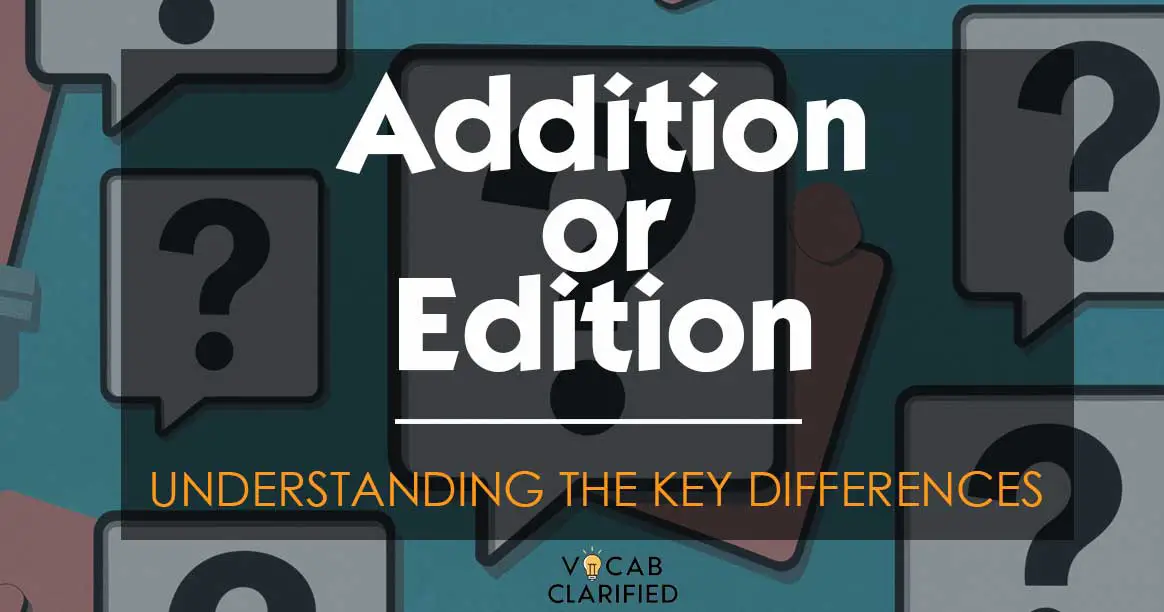Ever wondered whether to use “addition” or “edition”? Perhaps you’re reviewing a new print of your favorite book and are unsure whether to refer to it as the “latest edition” or “latest addition.” These two words sound similar and are easy to mix up, but their meanings are quite distinct.
In this post, we’ll explore the key differences between “addition” and “edition” to help you use them correctly in everyday situations.
Understanding Addition And Edition
Addition: Definition and Usage
“Addition” is a noun that refers to the act of adding something to something else.
It typically applies in mathematical contexts or when something new is included in a group or collection. For example:
- The addition of a new team member has greatly improved our project.
- In math class, we learned how to solve basic addition problems.
“Addition” signifies an increase or something that enhances a pre-existing entity. It’s used when you’re talking about including or adding something new.
Edition: Definition and Usage
On the other hand, “edition” refers to a particular version or form of a published work, such as a book, magazine, or newspaper.
It is typically used when discussing printed materials that go through different updates or releases. For instance:
- The first edition of this novel is extremely rare and valuable.
- I subscribed to the monthly edition of the magazine.
“Edition” indicates a specific version or issue, often referring to publications that have gone through various updates or formats.
Side-by-Side Comparison
To further clarify the differences and help you decide which to use, here’s a side-by-side comparison:
| Aspect | Addition | Edition |
| Definition | The act of adding something new | A particular version of a published work |
| Common Usage | “The addition of new software features.” | “The second edition of the textbook.” |
| Key Differences | Refers to inclusion or an increase | Refers to different releases or versions |
When deciding between “addition” and “edition,” consider the context.
If you’re talking about including something new, use “addition.”
If you’re discussing a version or form of a printed material, use “edition.”
The best term depends on whether you’re increasing something or referencing a publication.
Everyday Usage Examples
Here are some everyday examples to illustrate how “addition” and “edition” are used in common language:
- Addition: “The addition of a new playground will benefit the community.”
- Edition: “I own the special collector’s edition of the DVD.”
- Addition: “Can I make an addition to this proposal?”
- Edition: “The newspaper’s evening edition includes breaking news.”
- Addition: “The company made several key additions to its lineup of products.”
- Edition: “He is editing the third edition of his book.”
Conclusion
In summary, “addition” refers to adding something new, while “edition” refers to a specific version of a published work.
By understanding these distinctions, you’ll be able to choose the correct word with confidence and avoid confusion in both spoken and written communication.

